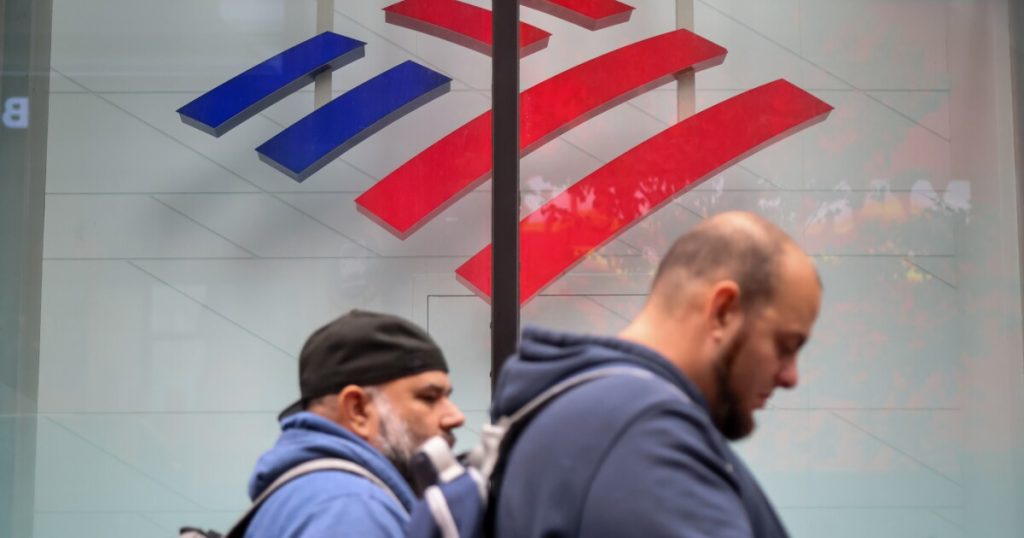- Key insight: The lawsuit challenges BofA’s use of automated fraud filters and its decision not to issue EMV chip cards for the benefits, highlighting liability risks for banks using outdated tech.
- What’s at stake: The bank is asking the court to dismiss claims for “treble damages” under the Electronic Funds Transfer Act, arguing all class members were already fully compensated.
- Forward look: A hearing on the bank’s motion for partial summary judgment, which could significantly narrow or eliminate the remaining claims, is set for April 17, 2026.
Overview bullets generated by AI with editorial review
The litigation arises from what the bank characterized in a court filing as “perhaps the largest epidemic of consumer financial fraud in U.S. history,” stemming from thieves stealing billions in unemployment benefits it distributed on the state’s behalf during the pandemic.
The Californians suing the bank claim that
The bank this week asked the U.S. District Court for the Southern District of California to grant summary judgment on all claims asserted by the five classes that the court has certified in the lawsuit.
How Bank of America distributes California’s unemployment benefits
California since 2010 has contracted with
The state does not pay the bank for this service. Rather,
BofA challenges claims made under EFTA
In its motion,
The bank argued that the Californians suing it cannot prove actual damages because, following consent orders issued in July 2022 by the Consumer Financial Protection Bureau and Office of the Comptroller of the Currency and subsequent remediation efforts, “all class members have been fully compensated for their claim amounts,” according to the bank’s motion.
The central issue is the efficacy of the remediation and whether full repayment strips consumers of their right to pursue additional damages or prevents further recovery.
The plaintiffs seek to recover so-called treble damages under EFTA. These are damages that multiply the actual damages by three as a way of deterring wrongful conduct. The bank asked the court to deny claims to these damages.
The bank also alleged that the attorneys representing the plaintiffs in the case initially offered flawed definitions of who would be entitled to damages because their definitions did not exclude criminals.
The bank, highlighting a common difficulty shared by many financial institutions, said that the core flaw with the case is the “inability to distinguish between legitimate cardholders and criminal fraudsters,” and the classes, as certified by the court, include criminals who defrauded the bank with fraudulent benefits claims.
Due process and other claims challenged
For example, the bank targeted claims alleging violations of the due process clauses of the U.S. and California constitutions.
These claims allege the bank, by issuing unemployment benefits, operated as a state actor when it denied claims, rescinded credits and froze accounts without providing the affected individuals with adequate notice or opportunity to be heard.
The bank also moved for summary judgment against claims that bank employees authorized or ratified anti-fraud efforts “with oppression, malice, or fraudulent intent,” which would result in so-called punitive damages.
Lastly, the bank challenged claims that the prepaid debit cards it issued should have included EMV chips, which could have helped prevent fraud.
The plaintiffs pointed out that EMV chips are an industry standard on payment cards, and
The bank’s argument against this claim was it had no legal duty to include EMV chips on the unemployment benefits cards because the contract with the state required only compliance with ISO 7811, which is a standard that regards magnetic strip cards. The contract does not mention EMV chips.
Key takeaways for financial institutions
The litigation challenges bank policies that the plaintiffs labeled “unlawful policies and practices,” such as the bank’s use of automated filters that summarily denied claims or rescinded credits.
This highlights the standard financial institutions must meet if they wish to defend their anti-fraud measures in court.
The tools banks implement against fraud must meet a so-called “reasonable investigation” standard described in the EFTA. Under this standard, a bank must review any relevant information it has regarding an account, which can include ATM footage, cardholder transaction history and other evidence.
The plaintiffs argued that poor hiring and training increased the risk of fraud and data breaches, highlighting the risk that banks can take on if they do not practice and document sound personnel management practices.
The claims against
The motion for partial summary judgment, along with its accompanying arguments and declarations, is set for a hearing on April 17. If the court grants

